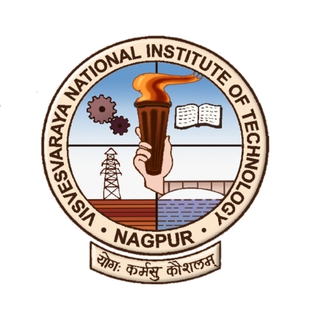
The Indian Institute of Science (IISc) is a public, deemed, research university for higher education and research in science, engineering, design, and management. It is located in the southern Indian city of Bangalore, Karnataka. The institute was established in 1909 with active support from Jamsetji Tata and thus is also locally known as the Tata Institute. It was granted a deemed university status in 1958 and recognized as an Institute of Eminence in 2018.

The Indian Institute of Technology Bombay is a public research university and technical institute in Mumbai, Maharashtra, India.

The Indian Institute of Technology Guwahati (IIT Guwahati) is a public technical university established by the Government of India, located in Amingaon area, North Guwahati Village area, in the state of Assam in India. It is the sixth Indian Institute of Technology established in India. IIT Guwahati is officially recognised as an Institute of National Importance by the government of India. IIT Guwahati has been ranked 7th in Engineering and 9th in Overall category in NIRF Rankings 2024.
The National Institutes of Technology (NITs) are centrally funded technical institutes under the ownership of the Ministry of Education, Government of India. They are governed by the National Institutes of Technology, Science Education, and Research Act, 2007, which declared them institutions of national importance and laid down their powers, duties, and framework for governance. The act lists 31 NITs. Each NIT is autonomous and linked to the others through a common council known as the Council of NITSER, which oversees their administration. All NITs are funded by the Government of India.

Visvesvaraya National Institute of Technology Nagpur (VNIT) formally known as Visvesvaraya Regional College of Engineering (VRCE) is a public technical university located in the city of Nagpur, Maharashtra. Established in 1960, the institute is among 31 National Institutes of Technology (NITs) in the country. In 2007, the institute was conferred with the status of Institute of National Importance by the National Institutes of Technology, Science Education and Research Act, 2007 of the Parliament of India with all other NITs.
The Indian Institutes of Technology (IITs) are the premier autonomous public technical and research universities located across India, founded under the leadership of Jawaharlal Nehru.
The Joint Entrance Examination (JEE) is an engineering entrance assessment conducted for admission to various engineering colleges in India. It comprises two different examinations: the JEE-Main and the JEE-Advanced.

The Indian Institute of Technology Madras is a public technical university located in Chennai, Tamil Nadu, India. It is one of the eight public Institutes of Eminence of India. As an Indian Institute of Technology (IIT), IIT Madras is also recognised as an Institute of National Importance.

Rajagopala Chidambaram is an Indian Physicist who is known for his integral role in India's nuclear weapons program; he coordinated test preparation for the Pokhran-I (1975) and Pokhran-II (1998).

Senapathy “Kris” Gopalakrishnan is an Indian businessman and the chairman of Axilor Ventures, a startup accelerator. He is one of the co-founders of Infosys, having served as its CEO and managing director from 2007 to 2011 and vice chairman from 2011 to 2014.

Indian Institute of Technology Bhubaneswar is a public technical university established by the government of India in 2008, located at Kansapada village, Khordha district, Odisha, India. It is located 24 kms south of Bhubaneswar and 4 kms from Jatni but is named after Bhubaneswar.

The Indian Institutes of Technology (IITs) are a network of engineering and technology institutions in India. Established in 1950, they are under the purview of the Ministry of Education of the Indian Government and are governed by the Institutes of Technology Act, 1961. The Act refers to them as Institutes of National Importance and lays down their powers, duties, and framework for governance as the country's premier institutions in the field of technology. 23 IITs currently fall under the tenor of this act. Each IIT operates autonomously and is linked to others through a common council called the IIT Council, which oversees their administration. The Minister of Education of India is the ex officio chairperson of the IIT Council. According to data obtained through Right to Information (RTI) applications, approximately 38% of Indian Institute of Technology (IIT) graduates from the class of 2024 have not secured job placements. This is the highest percentage in the past three years, with a steady increase from 19% in 2021 and 21% in 2022.

K. Radhakrishnan a.k.a. Koppillil Radhakrishnan is an Indian space scientist who headed the Indian Space Research Organisation (ISRO) as Chairman of Space Commission, Secretary of the Department of Space, Government of India. Under his leadership, India became the first country to reach Mars in its first attempt.

The Common Entrance Examination for Design (CEED) is a joint entrance exam for post-graduate studies in the field of technological design. The exams are held annually at all Indian Institutes of Technology (IITs) and Indian Institute of Science (IISc). The examination is hosted by the Industrial Design Centre, Indian Institute of Technology Bombay on behalf of Ministry of Human Resource Development, Government of India.

The Ministry of Education (MoE) is a ministry of the Government of India, responsible for the implementation of the National Policy on Education. The ministry is further divided into two departments: the Department of School Education and Literacy, which deals with primary, secondary and higher secondary education, adult education and literacy, and the Department of Higher Education, which deals with university level education, technical education, scholarships, etc.

Higher education system in India includes both public and private universities. Public universities are supported by the union government and the state governments, while private universities are mostly supported by various bodies and societies. Universities in India are recognized by the University Grants Commission (UGC), which draws its power from the University Grants Commission Act, 1956. The main governing body is the University Grants Commission, which enforces its standards, advises the government, and helps coordinate between the center and the state. Accreditation for higher learning is overseen by various autonomous institutions established by the University Grants Commission (UGC).
Arcot Ramachandran (1923-2018) was an Indian scientist, anthropologist, author and a former Under-Secretary General of United Nations Centre for Human Settlements, known for his scholarship on the subjects of heat and mass transfer and environment and his social commitment to the cause of sustainable development. The Government of India honoured him in 2003, with the Padma Bhushan, the third highest civilian award, for his services to the fields of Science and Engineering.

National Institutional Ranking Framework (NIRF) is a ranking methodology released annually by the Ministry of Education, Government of India, to rank institutions of higher education in India. The framework was approved by the former Ministry of Human Resource Development and launched by the Minister on 29 September 2015.

Vaidyeswaran Rajaraman is an Indian engineer, academic and writer, known for his pioneering efforts in the field of Computer Science Education in India. He is credited with the establishment of the first academic program in computer science in India, which he helped initiate at the Indian Institute of Technology, Kanpur in 1965. An elected fellow of all the Indian science academies, he is a recipient of Shanti Swarup Bhatnagar Prize, the highest Indian award in Science and Technology category for young scientists and several other honors including Om Prakash Bhasin Award and Homi Bhabha Prize. The Government of India awarded him the third highest civilian honor of the Padma Bhushan, in 1998, for his contributions to science.

T. G. Sitharam is a civil engineer, professor at IISc Bangalore, former director at IIT Guwahati.Currently, he is serving as Chairman of the All India Council for Technical Education,(AICTE) from 1 December 2022 onwards. He is known for his works in the fields of rock mechanics, rock engineering and geotechnical earthquake engineering. He is an elected fellow of Indian Geotechnical Society, Institution of Engineers (India) and American Society of Civil Engineers.















